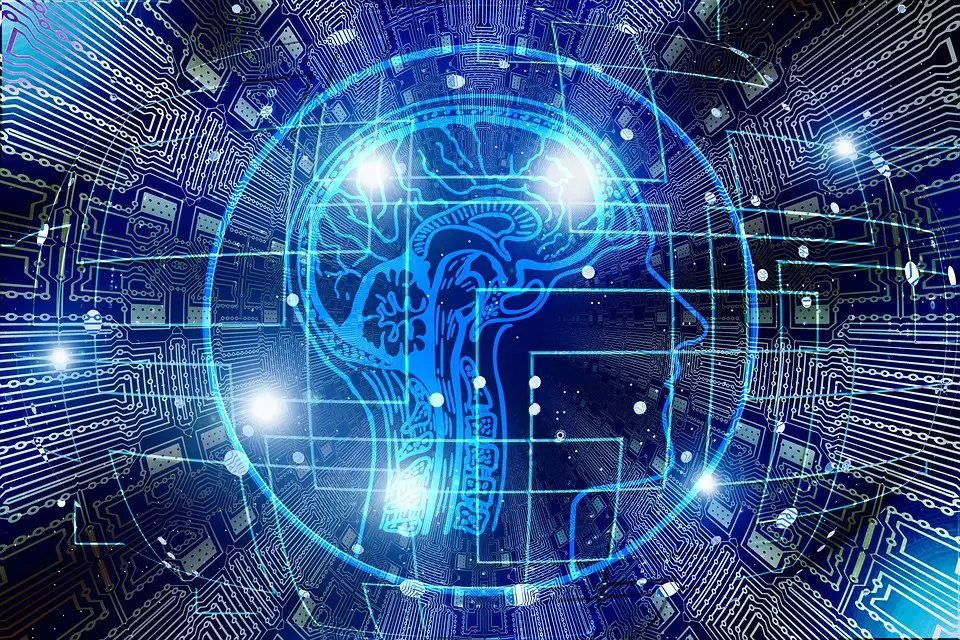Have you ever watched a guitar player at the top of their game, moving their fingers around on the fretboard so fast that you wonder how they can think that fast? The answer is, of course, they don’t really. It’s a result of muscle memory.
Athletes, musicians, and doctors learn to practice some tasks so many times that they can respond so quickly that consciously thinking about it actually slows them down.
Unfortunately, substance abuse and addiction cause chemical and structural changes in the brain that end up reinforcing negative behavior. The reinforcement of negative behaviors makes overcoming addiction incredibly difficult, however, there are ways to rewire your brain in recovery.
Rewiring Your Brain: How Does It Work?
The human brain doesn’t work the same way computers do, but in many ways, they are similar. As you go about your life, your brain programs itself in response to your surroundings, successes, failures, and life experiences. If there is something our brain feels is important or rewarding, it builds faster, stronger connections to the ability to perform that thought or action.
In a nutshell, the things you practice the most are the things that get faster connections in the brain.
The same goes for people struggling with addiction. While they have a physical dependency on drugs, there is also a psychological component at play.
When you feel happy, euphoric, or relaxed from getting high or drunk, the brain rewires itself to make it easier for you to do the things that caused it, even if it’s harmful. The result is repetitive and compulsive substance use.
Fortunately, just like how you can build new neural connections, you can break them too. Rewiring your brain after addiction is all about breaking these connections and forming newer, healthier ones.
The Science Behind Addiction
Many people seek addictive substances to escape to a happier place or to self-medicate. A brain that is addicted to drugs is exposed to an over-abundance of mood and mind-altering chemicals including dopamine, serotonin, endorphins, glutamate, and adrenaline. With a single drug hit, you can feel like you just won the lottery.
Reproducing this feeling in your daily life is a little bit of a different story. Feeling happiness can be a tamer, more controlled feeling. It’s hard to replicate that kind of overflowing chemical excitement in daily life without the euphoric rush associated with substance abuse. The desire to feel that “rush” or “high” again is how many substance use disorders start.
The more you light up the reward pathways, the more your brain demands that you do little else. You are no longer in the driver’s seat–you are no longer in control over your substance abuse. Instead, the brain is rewired to the point where its pleasure centers do the talking and give the orders.
How Addiction Changes the Brain
Different areas of the brain, including the basal ganglia, extended amygdala, and prefrontal cortex work together to regulate emotions, decision-making, and reward processing. When substances hijack these parts of the brain, they disrupt the brain’s balance, leading to compulsive drug-seeking behavior.
As addiction progresses, the brain undergoes neuroplastic changes, reinforcing the cycle of substance abuse. Over time, the pursuit of pleasure becomes the primary focus, overshadowing other aspects of life. This loss of control is the result of addiction’s impact on the brain’s circuitry, demonstrating how substance abuse can fundamentally alter an individual’s thoughts, behaviors, and motivations.
Understanding the neurobiology of addiction is crucial for developing effective interventions and treatments. By targeting specific brain regions and neurotransmitter systems that are effective, treatment providers can help restore balance and reduce the devastating effects of substance abuse on both the brain and behavior.
Methods for Rewiring Your Brain After Addiction
Rewiring your brain starts with four basic concepts. Recognizing these concepts can help you gain control back into your life.
“What fires together, wires together.”
In order to rewire your brain after addiction, it’s essential to understand how this happens in the first place. New neural pathways are how the brain forms new habits/patterns. With repetition, behavior reinforces synaptic connections in the brain, making the pattern more ingrained. The more people abuse substances, the more addicted they become. However, the more someone practices a healthy behavior, the more that healthy behavior becomes ingrained in their daily life.
The Perception of Yourself
You possess a unique ability to step outside your world and observe your actions. You can discern between good and bad decisions. In other words, you are not your thoughts, behaviors, or feelings; you have them. This realization empowers you not only to recognize negative thoughts or behavioral patterns but also to modify them for the better.
Understanding the significance of your thoughts is crucial in the brain rewiring process.
One beneficial exercise involves positive affirmations. Practice saying affirming statements like, “I have the power to change,” “I am full of potential,” and “I am mentally strong.” Repeating these affirmations consistently can benefit your self-worth.
Another effective technique is naming the behavior. When you feel the urge to indulge in an unhealthy habit, pause and identify the urge.
If you feel compelled to take a pill, acknowledge it by saying, “This is the urge to take opioids.” This simple act separates you from the urge itself. Once acknowledged, ask yourself helpful questions such as, “What triggered this urge?” or “What occurred just before I had this thought?”
This introspection can provide valuable insights into your behavior patterns.
Changing Total Behavior
Addiction recovery is about more than just giving up drugs and alcohol. It’s about changing your behaviors.
The four components of every behavior, including those associated with addiction, are:
- Doing (or active behavior): This is an action, such as driving to the liquor store, opening up a bottle of pills, or taking a hit of a joint.
- Thinking: These are the thoughts you have before or after the behavior.
- Feeling: These are the emotions you feel as a result of the thoughts you think or the behaviors you do, such as depression or guilt.
- Physiology: The brain releases neurochemicals and hormones that cause a physiological response in the body when engaging in a rewarding behavior. This response typically feels good at the moment, however, the body’s physiological response can then drive more of the behavior, causing brain structure to change.
The next time you have an urge to do an addictive behavior, notice the urge, name the urge, and replace it with a different behavior first.
For example, let’s say you have an urge to grab a drink. After you recognize and name the urge that you want to drink, replace it with a more positive behavior. For example, go outside and take a 10-minute walk. You can also do a mindfulness exercise or quick meditation. There are many different options.
Using Your Mental Power for Good in Recovery
It’s important to replace old neural pathways with new ones that supplement the kind of life you want to live. The more you fire the neurons on the new pathway by engaging in positive behaviors, the weaker the old neurological connections will become and the more you’ll increase neuroplasticity, which is the brain’s ability to learn new skills.
Rewiring your brain is all about replacing toxic patterns.
Research on the brain has revealed a critical insight: there exists a brief moment between a thought or urge and the subsequent action, often termed “free won’t.” This suggests that before succumbing to harmful behaviors, you possess the ability to pause and reconsider. In this fleeting moment, you can ask yourself, “What positive behavior can I substitute for this action?”
Exercising Your Brain to Heal After Addiction: Behavioral Therapy and More
If you start exercising your mind, you can create new pathways for positive coping skills that will help you stay sober. There are several evidence-based techniques for this, including Cognitive Behavioral Therapy (CBT), mindfulness, mental health rehab, and meditation. Even simple things like giving certain feelings names or breathing in deep and slow when there’s a trigger can sound silly, but they do work.
Other ways to rewire your brain after addiction include:
- Eating a healthy diet and staying hydrated
- Practicing good sleep hygiene
- Developing a regular meditation practice
- Getting regular exercise and staying active
- Participating in a comprehensive addiction treatment program
- Addressing any co-occurring mental health issues you may have
Find Help Today
If you’re struggling with drug addiction, don’t shy away from getting help. Many people are in the same boat. No matter what struggle you’re going through, the right treatment can help propel you forward. Rewiring your brain is possible, and we’d be honored to help you.
Our doors are open for you! Our mission is to help you live the life you deserve. We’ll help you get the treatment you need. Call 1st Step Behavioral Health at (855) 425-4846 or contact us here for more information about available programs.
Jump to a Section
Call (855) 425-4846

